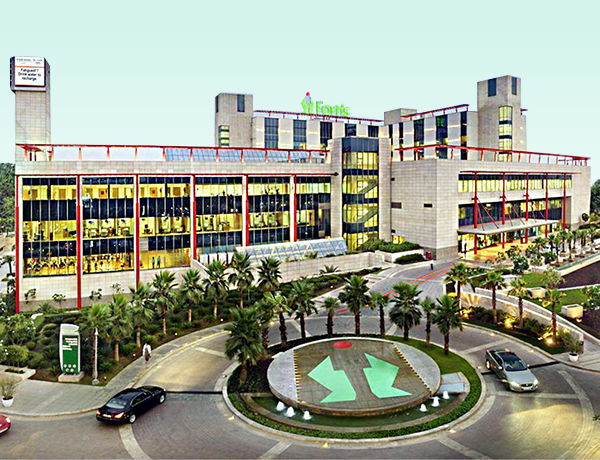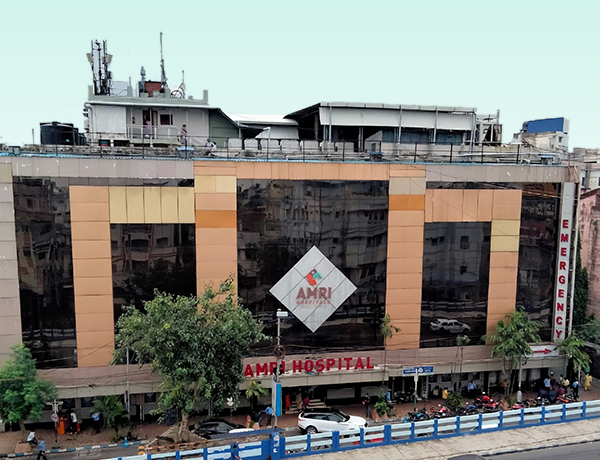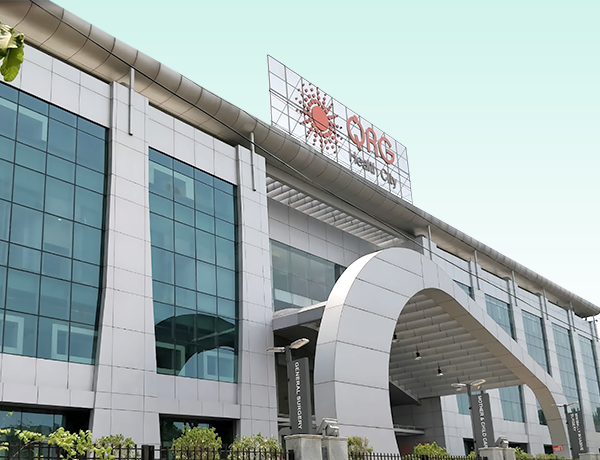MCL/PCL Reconstruction /Repair
MCL (Medial Collateral Ligament) and PCL (Posterior Cruciate Ligament) reconstruction or repair are orthopedic procedures designed to restore stability to the knee joint after injury. These ligaments are vital for knee function, and damage to them can result from sports injuries, accidents, or other traumatic events. These procedures are aimed at helping patients regain normal knee function and reduce pain.

Who Needs MCL/PCL Reconstruction/Repair
Individuals who may benefit from MCL/PCL reconstruction or repair include:
Athletes: Particularly those involved in sports that require pivoting and sudden changes in direction, like football, soccer, and basketball.
Accident Victims: Individuals who have experienced trauma, such as car accidents or falls, which has damaged their knee ligaments.
Patients with Chronic Knee Instability: Those who suffer from recurring knee instability due to ligament damage, which hasn’t responded to conservative treatments.
Knee Arthritis Sufferers: In some cases, these procedures are used in combination with other surgeries, like knee replacement, to improve joint function.
Patients with Complex Ligament Injuries: Some individuals may have damage to multiple knee ligaments, requiring specialized surgical intervention.
When to See a Specialist
You should consider consulting an orthopedic specialist for MCL/PCL reconstruction or repair when:
You experience significant knee pain or instability after an injury.
Conservative treatments like rest, physical therapy, or bracing haven’t improved your condition.
Your knee instability affects your daily activities and quality of life.
Procedure
Preoperative Evaluation: Your orthopedic surgeon will conduct a thorough evaluation, which may include imaging tests like MRI, to assess the extent of ligament damage.
Anesthesia: You’ll receive anesthesia to ensure you’re comfortable and pain-free during the procedure.
Surgical Approach: The surgeon will make small incisions around your knee, providing access to the damaged ligament.
Repair or Reconstruction: Depending on the extent of damage, the surgeon will either repair the torn ligament or perform a reconstruction using graft tissue, often from your own body or a donor.
Closure: The incisions are closed, and sutures or staples are used to secure the skin.
Postoperative Care: You’ll be closely monitored as you wake up from anesthesia. Physical therapy often starts shortly after surgery to facilitate healing and regain knee function.
Road To Recovery
Recovery after MCL/PCL reconstruction/repair typically involves the following:
Physical Therapy: A structured rehabilitation program to regain strength, flexibility, and stability in the knee.
Bracing: Depending on the surgery and surgeon’s recommendations, you may need a knee brace for support during the initial stages of recovery.
Activity Modification: Gradual return to activities and sports as directed by your orthopedic specialist.
Pain Management: Medications and therapies to manage postoperative pain and swelling.
Risk Management
Potential risks and complications associated with these procedures include infection, blood clots, nerve damage, or graft failure. Following your surgeon’s postoperative instructions and attending follow-up appointments are essential for minimizing these risks.
Benefits of MCL/PCL Reconstruction/Repair
Improved Knee Stability: Restoration of ligament function enhances knee stability and reduces the risk of further injuries.
Pain Reduction: Many patients experience reduced pain and improved quality of life after surgery.
Return to Normal Activities: The procedures can help athletes and active individuals get back to their desired activities.
Prevention of Degenerative Changes: Repairing damaged ligaments can prevent long-term degenerative changes in the knee joint.
Frequently Asked Questions about MCL/PCL Reconstruction/Repair
How long does it take to recover from MCL/PCL reconstruction or repair?
Recovery times vary but can range from several weeks to several months, depending on the extent of the injury and surgery.
Can I prevent MCL/PCL injuries?
You can reduce the risk by wearing appropriate protective gear during sports and practicing proper techniques.
Are there non-surgical alternatives for MCL/PCL injuries?
In some cases, mild MCL injuries may heal with rest, physical therapy, and bracing, but more severe injuries often require surgery.
Can these ligaments be repaired with minimally invasive techniques?
The surgical approach depends on the extent of the injury, but minimally invasive techniques are sometimes used.
Is it common to experience knee pain after these surgeries?
Some postoperative pain is normal, but it should gradually improve with time and appropriate pain management.
Treatians As The Best Choice
Treatians understand that seeking medical treatment abroad can be a daunting experience for patients and their families. That’s why the company offers end-to-end support to its clients, from the initial consultation to post-treatment care. The company provides personalized treatment plans that are tailored to meet the individual needs of each patient, and its team of dedicated professionals is always on hand to provide guidance and support throughout the entire process. Contact us at +91-7982312582, drop your email [email protected]
- Trauma & intensive care
- Aged Care
- Community Services
- Diagnosis & Investigation
- Medical & Surgical
- Mental Health
- Rehabitation
- Specialised Support Service



















